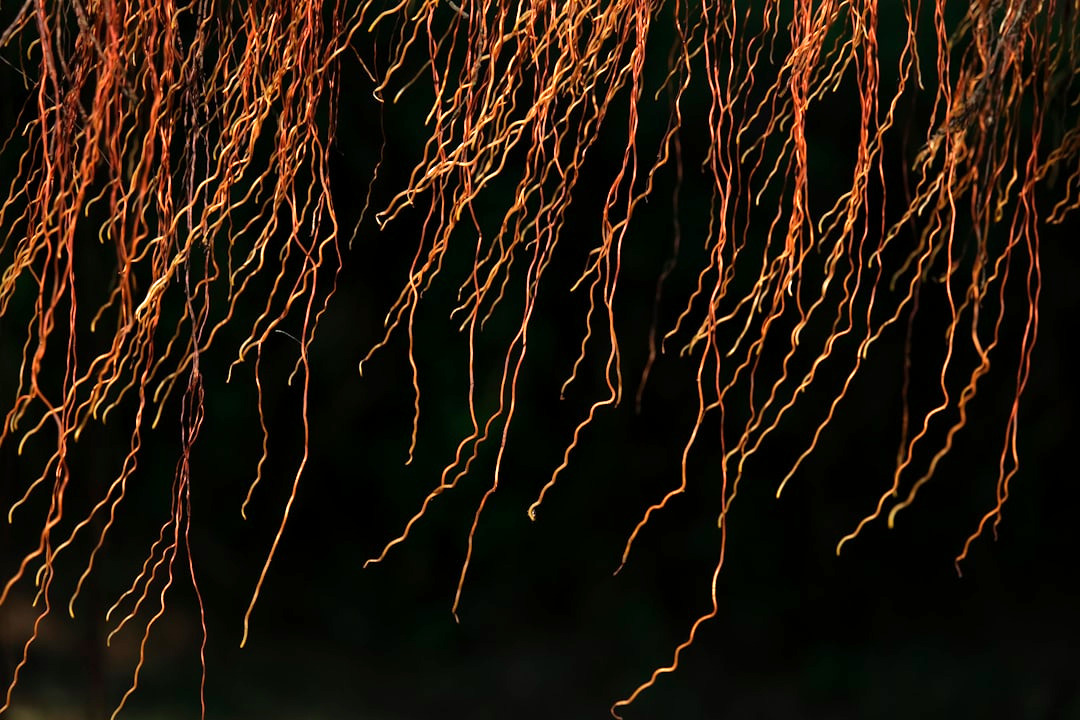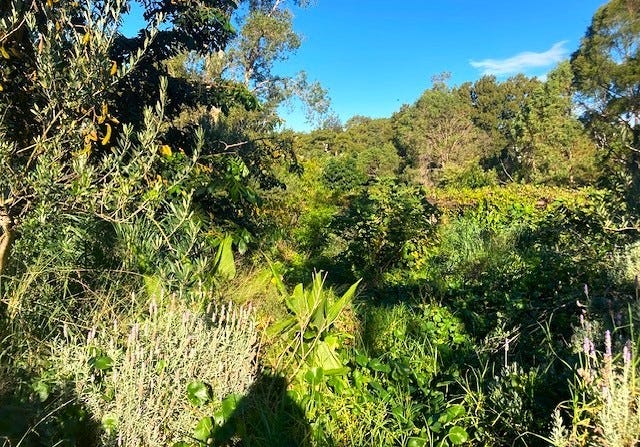Roots and all
I have just come in from the balcony where I have been making seed raising mix and fantasising about lush seedlings. But the sad reality is that I have a patchy history with seed raising – seeds not sprouting, or sprouting but not thriving . This year I am determined to crack it, spurred on by my envy of the successes of others down at the community garden, as well as guilt over the plastic seedling pots stacked in my garage. I am not sure what the magic formula will be but now the weather is finally warming up I am experimenting with soil mixes and a very mini greenhouse. You will hopefully be getting progress, not failure, reports over the coming months.
Planting seeds has got me ruminating on roots. Both those tiny miraculous threads that are fundamental to plant and soil health as well as the even less visible ones that so many of us humans yearn for these days. All precious and vital for life to thrive.
Not so long ago, most people’s roots grew in one place from birth to death. But then the global tsunamis of colonisation and industrialisation swept in, and now climate upheaval is driving a further wave of migrations. So many uprootings. Each one, whether forced or unforced, tears a person out of the fabric of their birth places and communities, roots dangling and fragile.

Growing new roots is a potent and bittersweet metaphor for migrants and refugees. And it’s in many ways more than a metaphor as human bodies as well as psyches do their best to find nourishment from new foods, soils and waters as well as cultures. Like the seedlings I plant out in my garden, some new arrivals settle in and grow vigorously over time, while others fail to thrive overcome by previous traumas and transplant shock. Reflecting on my own experience as someone who has lived in 3 countries, always through the privilege of choice, I think on how disruptive and lengthy the process of growing roots can be in even the best circumstances, let along in the most challenged and deprived. Yet more and more this is the work of humanity now to cultivate roots in defiance of modernity’s disconnections.
As a child, born and raised on the harbour shores of Tāmaki Makaurau/Auckland my roots felt relatively secure in the rich volcanic soils of my beautiful homeland Aotearoa New Zealand. I knew myself as a pākehā (a European New Zealander), a descendant of four generations of settlers on land traditionally owned by Māori tribes. As an adolescent I became more aware of how colonisation was still very present, in me and in my country. I learnt how unfair and dishonoured the Treaty of Waitangi between the British Crown and many Māori chiefs was, and I saw for myself the ongoing racial discrimination against Māori and recent Pacific Islander migrants.
By the time I was 21, while I loved my country, I did not know how to navigate all the tensions I felt there, both collective and personal. The Government of the day was right wing and repressive, the prevailing mores rigidly maintained by a posse of conservative white men. Impatient to get on with my one (hopefully) wild and precious life, I left unable to imagine that over the next 50 years my country could and would transform into an evolving progressive bi-cultural nation.
My ancestors left Ireland, Scotland and England because they were poor or convicts or dreamt of riches and land in the colonies. I migrated for experiences and adventures. First, I went to Naarm/Melbourne, Australia. But here I could find no soft soil to put down my exposed roots. So, I went on to London, vowing not to get stuck in this city as so many young Australians and New Zealanders seemed to do. But from the minute I stepped off the plane I felt pulled into her warm embracing arms and before I knew it my roots were nestling into her damp soil.
The irony of fetching up in London in late 1979, having fled the conservatism of NZ, was that I made my entry alongside the ascendancy of Maragret Thatcher. The political battles I felt overwhelmed by back home called me into engagement here. When I think about why this was so I realise it was because in London I quickly found my tribe of fellow rebels all keen to subvert, protest and forge alternative lifestyles. Back home I had felt the odd one out questioning so much, here I could unfurl my leaves of rebellion, living in squats, going on protests, working in an alternative bookshop. I thrived in my new place.
But, after a few years, I hit a wall. Each cold damp winter brought weeks if not months of illness while my working visa was on a countdown. But more than this my soul yearned to return to the Pacific. For all my European ancestry, I came to the realisation, I belonged below the equator not above it.
By the time I was 27, I began easing my roots into the sandy soils of Gadigal /Sydney. There was so much I loved about this beautiful city, but even so for the next forty years, I would still go through periods of asking myself if I was on the right side of the Tasman Sea. As my birthplace transformed itself through decades of struggles and reckonings with its colonial past and legacies, Australia dodged hard questions about its roots as a nation. The widespread massacres and the stolen generations of this continent’s First Nations peoples hang heavy in the air here. And, despite some advances in First Nations-settler relations, the land thefts and desecrations continue unabated with neither treaty nor constitutional recognition for its Traditional Owners.
At first, I attempted to distance myself from much of this horror by identifying myself as a New Zealander but when you live in a place it reworks you, microbe by microbe, crawling up the roots that sink down into the soil beneath you. I became Australian in body long before my consciousness fully embraced this identification with all of its tensions and tragedies.
Roots never form in isolation. Mine were strengthened when first my brother and then my parents joined me here in Australia. As my parents aged, I knew this was where I needed and wanted to live. But after my mother’s death in 2018, Jon and I did briefly entertain the question of whether we should now go to live in NZ. My birth place was looking good with Jacinda Ardern’s warm humanity leading the country, while Australia’s Government was once more mired in right wing infighting and sell offs to mining interests.
We spent a month travelling around Aotearoa New Zealand asking what if? So much appealed, but when I faced the reality of leaving behind forty years of my life here in Australia, I realised I could not transplant myself again, even back to my birthplace. Then Covid hit. Borders shut. And my roots multiplied and strengthened here on Wangal Country.
For me those years of lockdowns began a time of earth-based learning. I spent as much time as I could in our park and community gardens, hands in soil, getting to know who I lived with, worms and all. And when I came inside, I attended Zooms, learning from First Nations elders and teachers like Professor Anne Poelina , Dr Mary Graham , Dr Tyson Yunkaporta and Professor Bruce Pascoe about how to live respectfully on Country. Through their wise guidance and generous invitations, I slowly came to understand that I do belong here, roots and all. Listening to them, I heard that they do not want settler guilt and shame but acknowledgment and respect from all Australians. Over and over again came the message that settlers can become their allies by learning from First Nations’ intimate knowledge and care for Country, and by supporting truth telling processes about Australia’s colonial history and its genocidal practices.
While Australia’s colonisation was undoubtedly more brutal than in Aotearoa New Zealand, the playbook and consequences are substantially the same. Whatever side of the Tasman I live on, I am a part of a history and ancestry which has been both displaced and displacing as the result of regimes which are intent on land theft and exploitation of people and places. Rather than trying to distance myself from the horrors and injustices of colonisation, I am digging in now to know the soil of where I live so that I can contribute to the healing of so many harms and the growing of a culture based on recognising and repairing severed bonds.
I see now how the colonising mindset I grew up within wanted all the good stuff that a place could offer, with no thought of giving back. As a young traveller, I was motivated by longing, more than belonging. Now after years of listening to guidance from those whose worldviews are rooted in relationality not extraction, I understand that life in any place can only thrive through reciprocity. And the learning and belonging that this creates is the best possible basis for a good life anywhere.
I no longer dream of living elsewhere. Each day I give thanks to Wangal Country, acknowledge her Traditional Owners, pay my respects to their elders and greet all my fellow beings here, where I too now belong.
I would love to hear where your roots are right now, how they are faring, and how you feel about belonging where you live. Do your roots yearn for a different kind of soil? Are there ways you can work with where your feet are planted to enrich the physical and metaphorical ground that gives you life?



Yes to under-stand,
to deep roots’ deep listening.
To stand corrected.
I like those two assignments of a settler: caring for Country (here in Hawai`i we might say mālama `āina) and telling the truth of the colonial history. I’ve been thinking a lot about how I give back here, and these two sound like perfect places to begin. I recently added a Land and People Acknowledgment on my About page, but it feels kind of … puny. I’d like to make it more prominent, maybe at the beginning of posts? Still pondering. Anyway, I’m glad to hear more of your story, and that you are feeling at home and digging in (in many ways!) where you are. 💚